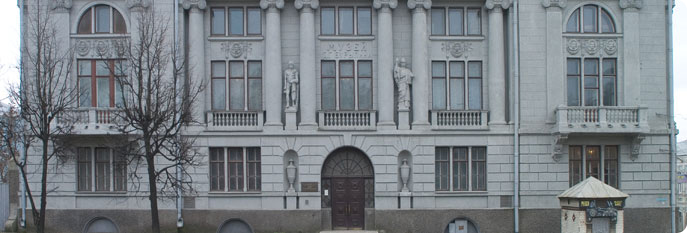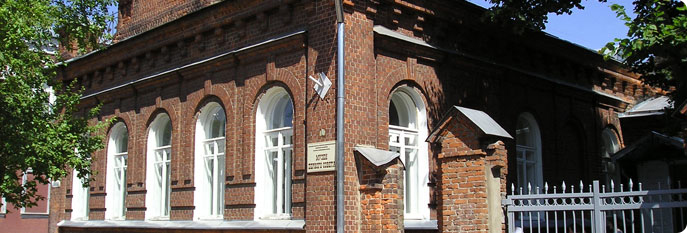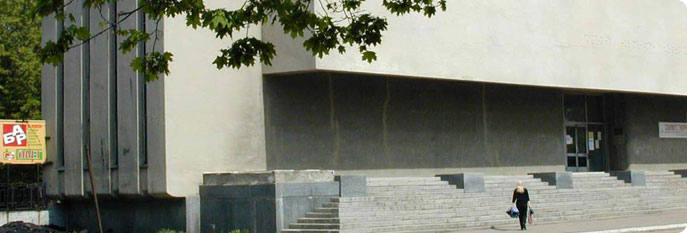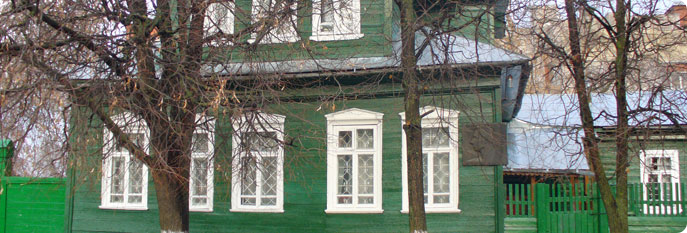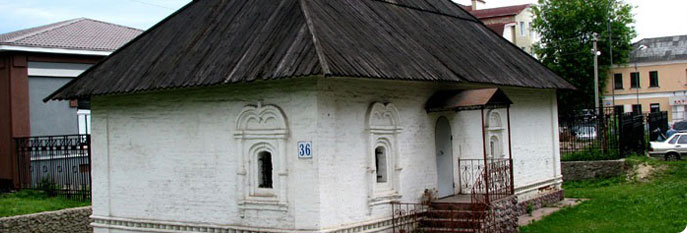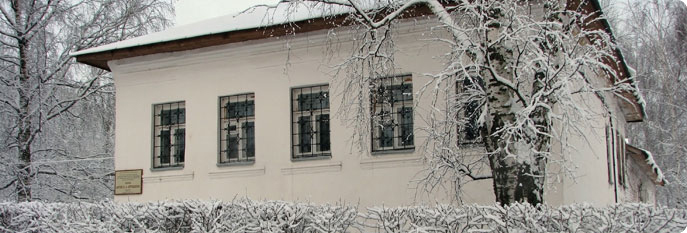The Museum’s Structure
Ivanovo State Museum of local history consists of five independent departments: The Museum of Industry and Art, Ivanovo Printed Cotton Museum, The Museum of the First Soviet, the Bubnovs’ Family House-Museum and the House-Museum of Dmitry Furmanov

The Museum of Industry and Art
The main museum’s building opened in 1914. The halls on its three floors create the space for exposition of the unique collections of Dmitry Burilin. The collection covers the period from the Antiquity till the early 20th century and comprises books, chinaware, paintings, and weapons, items of decorative and applied arts.
There are several permanent expositions in the Museum:
“Arsenal” unites more than 500 items of the 14th – 20th century cold and firearms from different countries, including Russian warriors’ armour of the 16th century, samurai’s armour of the 18th century and historical reconstructions;
“Golden Room” containsreligious cult items, coins, medals, orders made of precious metals and personal belongings of the Emir of Bukhara Alim Khan.
“European Collection” presents historical and cultural development of European continent
“Art and Time” demonstrates the restored items of Burilin’s collections: portrays of Ivanovo manufacturers and members of their families, marble sculptures,items of decorative and applied arts, household items.
The White Hall is the concert and exhibition hall of the museum. Here the museum exposes the collection of paintings and organizes the concerts of chamber and classical music.
“Reading Room of Burilin’s library” tells the history of the library’s creation. The department “History of Tolstoy’s Room” presents the history of acquaintance of Dmitry Burilin and Leo Tolstoy.
“Ivanovo region’s nature” is one of the oldest and the most popular among children exposition rooms in the town; here young visitors can learn about flora and fauna of the region.
 Ivanovo Printed Cotton Museum
Ivanovo Printed Cotton Museum
The exposition is based on the unique textile collection which numbers half a million items. The museum is located in Dmitry Burilin’s family house built in the early 20th century in art nouveau style. The utility buildings in the house’s courtyard provide space for the exhibitions, funds and the library.
The main exhibition, “Ivanovo textile: History and the Present”, tells about the development of production from the ancient times till the present. The dominant idea of the exposition is the presentation of Ivanovo printed cottons as one of the forms of decorative and applied arts preserving and developing the traditions of folk ornament.
In 2007 with the support of Moscow Fashion House “SlavaZaitsev”, Government of Ivanovo Region and the club “Business Woman” the Museum opened the exposition “SlavaZaitsev. Life=Creative Work” – the story about the life and work of a world-known modeler. The exhibition tells about the modeler who was born in Ivanovo, studied in the textile technical secondary school and began his creative work.
Ivanovo Printed Cotton Museum is connected with Ivanovo Museum of Industry and Art withan underground walkway.


 The House-Museum of Dmitry Furmanov
The House-Museum of Dmitry Furmanov
The building of the memorial museum was constructed in the late 19th century; it was owned by the grocer Medvedev. The Furmanovs rented a room there, and on November 7, 1891 the future writer was born. The exhibition “The Middle – The View from the 21st Century
” is devoted to the town’s history, particularly to the period of the late 19th – the early 20th century. It presents the palette of the region’s life with all its political and social developments. The exposition is based on the originals among which are documents, paintings, household items, rare books, clothes. The paintings include the works of D.A. Trubnikov (1885 – 1947) and M.I. Maljutin. One of the rooms of the museum represents the restored memorial room of the Furmanovs, where the writer to be had been born and spent his early years. The personal and creative life of D.A. Furmanov is presented in the historical part of the exhibition. Here you can see the lifetime publications of the author of a well-known novel “Chapayev”, the original photographs and personal letters of the writer the town was named after.
